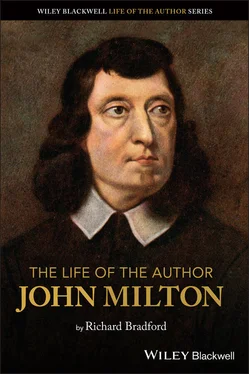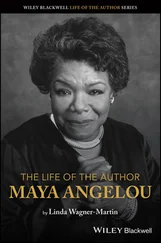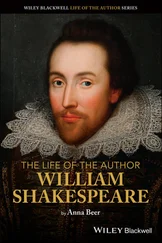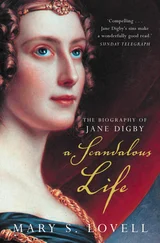1 ...7 8 9 11 12 13 ...16 The poems written by Milton at Cambridge are complex existential pieces, sometimes indicating uncertainties regarding religious doctrine, but we should recognise that behind them Milton was aware of a society, a world, in a state that fluctuated between tyranny and chaos. Eventually the gap between the writing and the experience would narrow. He would become personally involved in a war and a new form of government unlike any in the history of Christian Europe and afterwards he would write a poem about the relationship between God and man.
After seven years at Cambridge (1625–32), there were several career paths open to Milton. In 1631, his younger brother Christopher had been admitted to the Inner Temple in London to study for the profession of lawyer, but it had been assumed that John would make use of his considerable academic achievements and enter the more respectable sphere of the Church. Instead he chose an existence that some might regard as self-indulgent. He would spend the next seven years reading, thinking, writing and travelling.
In the autumn of 1631 Milton’s father retired from business, gave up the house in Bread Street and moved with his wife Sara to Hammersmith, now part of Greater London but then a quiet country village some seven miles from the City. Less than a year later his son took up residence with him to begin what amounted to an extended period of self-education. As he would later reflect, ‘At my father’s house in the country, to which he had gone to pass his old age, I gave myself up with the most complete leisure to reading through the Greek and Latin writers; with the proviso, however, that I occasionally exchanged the country for the town, for the sake of buying books or of learning something new in mathematics or music, in which I then delighted’ ( WJM , VII, p. 120). There is a sense here of Milton attending at once to the orthodoxies of intellectual endeavour, particularly classical learning, while calculatedly removing himself from the demands and opportunities of the contemporary world. He seemed set upon an objective, but its exact nature and the manner of its realisation remained undisclosed. There were, however, indications.
The most revealing account of what Milton was attempting to achieve during those years of retirement came from the man himself in a 1633 letter to an unidentified correspondent (the fact that the letter is in English, rather than Latin, and that its manner is formal rather than intimate, discount Diodati as the recipient). He confesses that the ‘sin of curiosity …’ was causing him to become ‘the most helplesse, pusilanimous and unweapon’d creature.’ He reflects upon the various options of an active life – marriage, the routine professions of the moneyed classes – and by his tone betrays a disinclination towards any of them, bordering upon fecklessness.
There is against yt [his supposed inclination to the retired life] a much more potent inclination imbred which about this tyme of a mans life solicits most, the desire of house & family of his owne to which nothing is esteemed more helpefull then the early entering into credible employment … and though this were anough yet there is to this another act if not of pure, yet of refined nature no lesse available to dissuade prolonged obscurity, a desire of honour & repute, & immortall fame seated in the brest of every true scholar which all make hast to by the readiest ways of publishing & divulging conceived merits as well those that shall as those that never shall obtaine it.
( CPW , I, pp. 319–20)
Regarding the ministry, he refers to the parable of the talents,
from due & timely obedience to that command in the gospell set out by the terrible seasing of him that hid the talent. It is more probable therefore that not the endless delight of speculation but this very consideration of that great commandment does not presse forward as soone as may be to underg[o] but keeps off with a sacred reverence & religious advisement how best to undergoe[,] not taking thought of being late so it give advantage to be more fit.
( CPW , I, p. 320)
He appears here to be ransacking the Gospels for some pretext that would justify his decision to remain in a state of limbo. To become a clergyman, indeed even to partake of the ceremony of marriage, would mean that he would have to declare some degree of affiliation to a faction of the Protestant faith, a phenomenon that was becoming more splintered by the month. To some, this might seem a strategy of avoidance yet there is evidence to suggest that he had chosen to observe events from a distance, consider what he witnessed in relation to his private regime of reading, and wait upon the day that the sum of his wisdom might be employed as a calling or vocation.
Milton would already have witnessed at Cambridge the growing tensions between the advocates of Puritanism and the better-established champions of high-Anglicanism. In the University, theology was still largely a matter for abstract speculation and private commitment but within England as a whole these same divisions were coming to influence conventions governing behaviour and lifestyle. The Puritan position was made clear in William Prynne’s Histrio-Mastix: or, The Players Scourge and Actors Tragedy (1632). As indicated by his title Prynne was particularly agitated by stage plays and masques, which he saw as licensing hedonism and immorality, but this was but his opening tirade in a thousand page invective against dancing, maypoles, sports of any kind, rural fairs, stained glass windows, ostentatiously decorated altars, the wearing of garishly coloured vestments by members of the clergy and much more. Prynne’s logic is clear enough: there is a causal relationship between secular activities in which display or enjoyment are prominent and religious practices that show allegiances to Catholicism. Prynne and many other extremist Puritans held that indulgent gratification was not only immoral but an indication of treacherous affiliations to enemies of England, specifically the Catholic nations of continental Europe.
Prynne’s book was prompted by a tendency in Charles’s court to sponsor plays and masques which celebrated him and Queen Henrietta as at once passionate yet ungoverned by the rules thought appropriate for fallen humanity. Moreover Charles attempted to promulgate the culture of his court to the nation as a whole. Throughout the early 1630s he issued proclamations commanding gentry and nobility to run their country estates as hospitable sinecures in which the lower orders would be encouraged, with financial sponsorships, to treat the Sabbath and other holidays as the opportunity for relaxation and recreation. Indeed as a direct rebuke to Prynne’s polemic Charles ordered to be reissued in 1633 a revised edition of James I’s controversial Book of Sports . According to this, on Sundays ‘our good people be not disturbed, letted or discouraged from any lawful recreation, such as dancing, either men or women; archery for men, leaping, vaulting, or any other such harmless recreation, nor from having of May-games, whitsunales, and Morris-dances; and the setting up of May-Poles and other sports therewith used.’
During that same year Laud became Archbishop of Canterbury and immediately began to bring the church into line with his own high Anglican beliefs and practices, ordering his bishops to supervise closely what was preached and what rituals performed. Puritan-leaning ministers would be ejected and forbidden from setting up private chaplaincies. Ordinances were issued requiring fixed altars to replace plain communion tables and clergy were told to conduct services in vestments that were virtually identical to those of Catholic priests. It is certain that Milton was aware of this. Even if his self-imposed country exile detached him from the cauldron of dispute that was London he would need only to attend his local parish church to witness the changes. While he showed reluctance to comment directly on contemporary events it is clear from his poetry in this period that such matters were exercising his imagination.
Читать дальше












